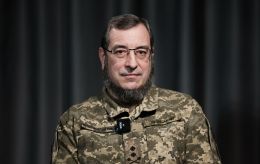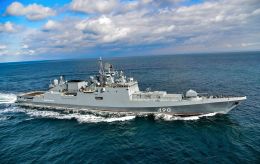Ran into criticism. How Trump's statements prompting Europe to reconsider U.S. leadership in NATO
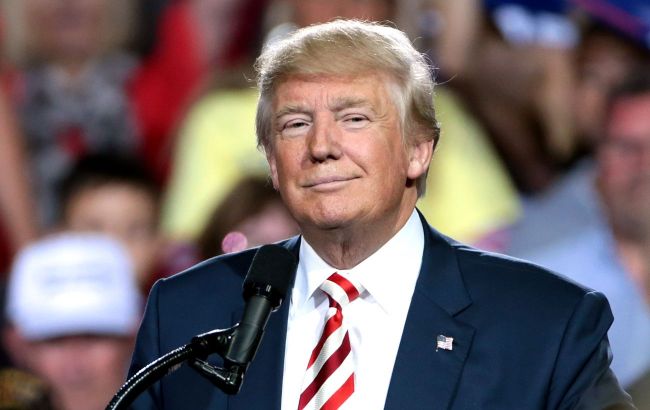 Photo: Donald Trump again criticizes NATO partners (flickr.com/gageskidmore)
Photo: Donald Trump again criticizes NATO partners (flickr.com/gageskidmore)
Nine months before the U.S. elections, the main favorite from the Republican Party, Donald Trump, is once again raising the stakes. This time, with pressure on NATO and a statement about the possible encouragement of aggression by the Russian Federation in Europe.
More details about Trump's threats, the reaction of allies, the reasons for such rhetoric, and the risks for our country you can find in the material by RBC-Ukraine.
The article was prepared using materials from The New York Times, CNN, Handelsblatt, statements by Donald Trump, Western leaders, and comments from political scientist Volodymyr Fesenko.
Contents
- Trump's provocation and what it means
- Assistance to Ukraine.Why NATO prepares a backup plan and how it's related to Trump
Trump's provocation and what it means
At a rally in Conway, South Carolina, on February 10, Trump said he "intended to encourage" Russia to do "whatever the hell they want." That is, to attack any NATO member who does not "pay the bills." This refers to the fact that according to the Alliance's charter, its members must spend at least 2% of GDP on defense needs. In previous years, only some met this criterion, and during his presidency, Donald Trump criticized them for it.
On Saturday, he recounted how he persuaded Western leaders to increase military spending. According to him, "NATO was busted" until Trump became President of the United States.
"I said, everybody's gonna pay. They said, well, if we don't pay, are you still going to protect us?' I said, absolutely not. They couldn't believe the answer," he described one of the meetings with leaders of NATO countries.
Supposedly, the president of "one large country" asked him whether the United States would defend its allies in Europe from a Russian invasion if they did not pay.
"No, I would not protect you. In fact, I would encourage them to do whatever the hell they want. You got to pay. You got to pay your bills," Trump said.
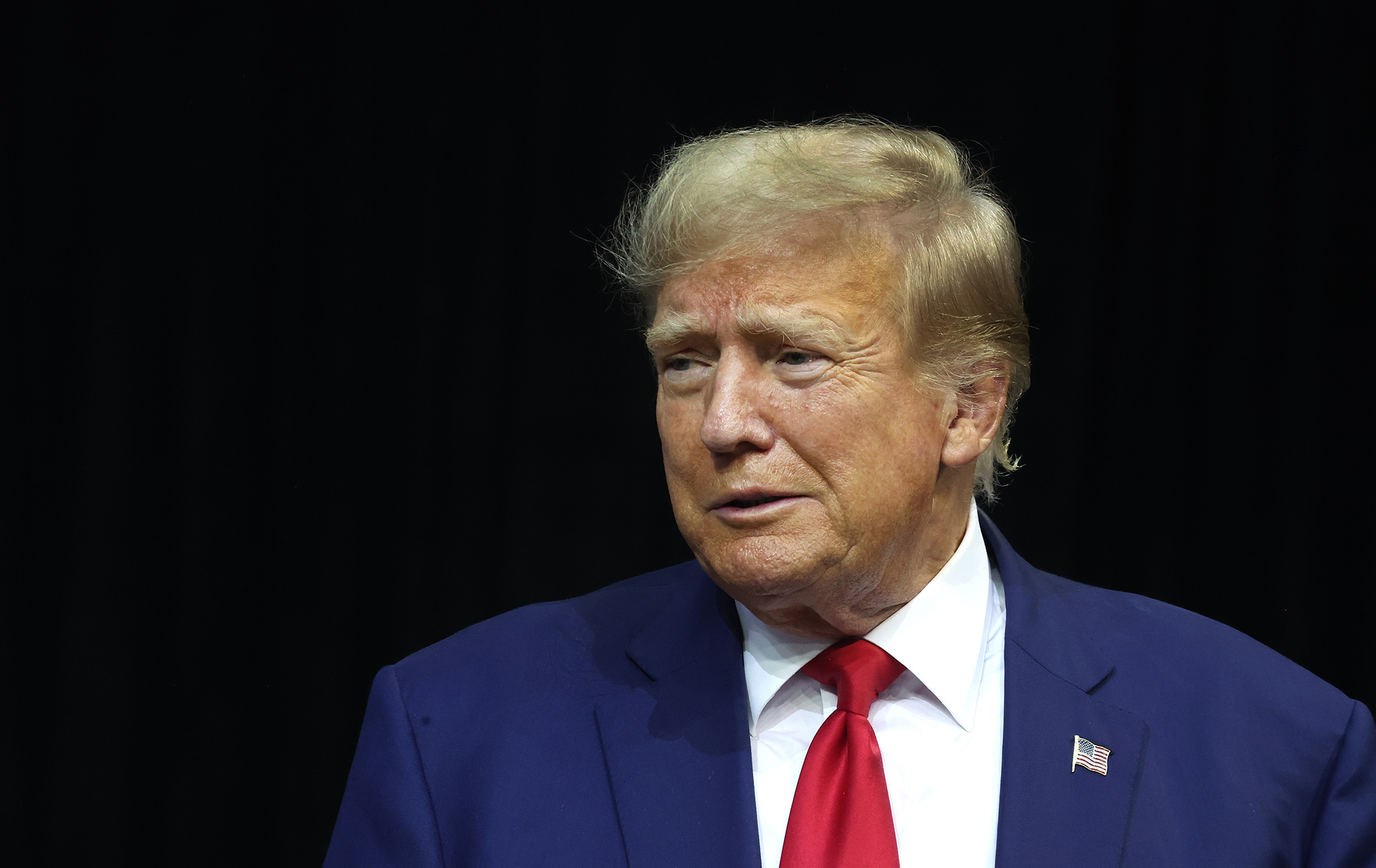
Photo: Donald Trump told supporters about alleged threats to encourage Russia to attack allies in Europe (Getty Images)
The North Atlantic Treaty Organization is based on a guarantee of collective defense enshrined in Article 5. According to this article, an attack on one member country is considered an attack on all NATO countries. Saturday's comments by Trump were a direct indication that if re-elected, he does not intend to defend partners from a possible Russian attack.
As CNN writes, Trump has inaccurately described NATO financing for many years. Of course, the goal of spending at least 2% of GDP on defense exists, but this figure is only a guideline, not an obligation to "pay the bills." Moreover, member countries do not refuse to contribute to NATO's common budget for managing the organization.
So what did he mean? Ukrainian political scientist Volodymyr Fesenko believes that Trump's statements should not be taken literally, he certainly will not encourage Russia to attack European countries.
"This is an unsuccessful and very inappropriate form and substance hint that, allegedly, if you don't want to spend money on defense, then in case of an attack on you, it will be your problem. Most likely, that's what he meant because he had repeatedly expressed such an opinion when he was president. I am convinced that it is not about encouraging aggression. It's an unsuccessful statement, for sure, and there are many of them in his rhetoric," Fesenko said in a comment to RBC-Ukraine.
When discussing Trump's words, it is important to remember that rhetoric is one thing, and practical actions are somewhat different. Especially when it comes to pre-election rhetoric, which is always sharper, more definite, and directly targets the voters. However, one has to act more cautiously and deliberately regarding governance, and Trump has already experienced this.
"Before the election, he talked about the "Russian Crimea." When he became president, we saw that he did not recognize Crimea as Russian. His advisors quickly explained to him why this could not be done. He said he wanted to find an understanding with Vladimir Putin and tried to do so, but in the end, it turned out differently. The statement about ending the war in Ukraine in 24 hours has become known. Everyone understands that this is impossible. Even if he wants to stop the fire, which is not easy and impossible to implement in 24 hours, and if he is willing to make peace on Russian terms, then Ukraine and many of our European partners will not agree," Fesenko cited examples.
Reactions to Trump's words and what Europe fears
As expected, Trump's provocation has drawn criticism. NATO Secretary-General Jens Stoltenberg called these talks undermining collective security. At the same time, White House spokesperson Andrew Bates described them as "endangers American national security, global stability, and our economy at home."
"The promise of NATO – that an attack on one is an attack on all – keeps American families safe. It's that simple. Any individual who calls into question the durability of that vow is a danger to our security," President Joe Biden said the day before.
Earlier, he warned that a potential second Trump term would ruin international relations and "encourage America's enemies." He characterized the behavior of a likely future opponent as predictable for someone who promises to rule like a dictator "on day one."
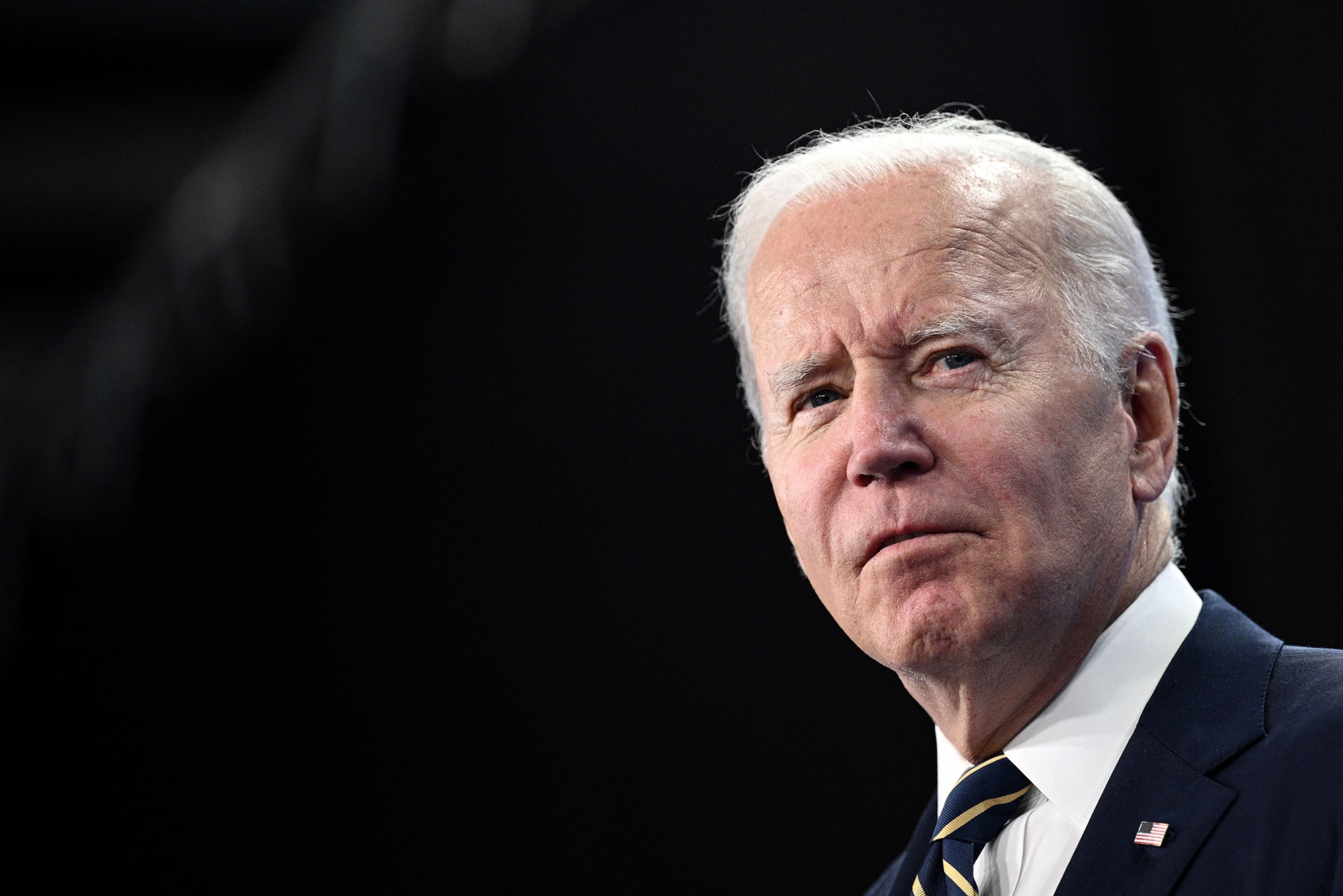
Photo: Joe Biden, some Republicans and European leaders criticized Trump's words (Getty Images)
Trump's statements have also been criticized by part of the Republican camp. Former presidential candidate Chris Murphy stated that Trump should not return to the White House because of such statements. Former South Carolina governor Nikki Haley, who remains the sole competitor to Trump in the Republican Party, said that the last thing we ever wanted to do is side with Russia. Senator Lindsey Graham disagrees with the rhetoric regarding NATO. At the same time, Senator Thom Tillis believes that Trump's aides have not yet clarified to him the obligations of the U.S. as a member of the Defense Alliance.
Republican Marco Rubio, vice chairman of the Senate Intelligence Committee and co-author of the law blocking U.S. withdrawal from NATO without congressional approval said that Trump told an "anecdote" from his presidency in South Carolina.
"He doesn't talk like a traditional politician; We've already been through this. You think people would have figured it out," he noted, adding that almost every U.S. president has been dissatisfied with allies' defense spending. "Trump's just the first one to express it in these terms."
Europe Reacts Sharply. The head of EU diplomacy, Josep Borrell, noted that NATO cannot depend on the mood of the U.S. president. Poland's Deputy Foreign Minister, Andrzej Szejna, called Trump's statement a crossing of red lines. Meanwhile, Polish Prime Minister Donald Tusk sees a rational grain in the idea that if Europe does not strengthen its security, it will eventually lead to catastrophe. European Council President Charles Michel expressed a similar sentiment.
"Reckless statements on NATO's security and Art 5 solidarity serve only Putin's interest. They do not bring more security or peace to the world.
On the contrary, they reemphasize the need for the EU to urgently further develop its strategic autonomy and invest in its defense. And to keep our Alliance strong," he wrote in a microblog on social media platform X.
In any case, it is not obligatory if Trump is elected president, he will act as he says. However, it must be considered that if he harbors such thoughts, unfortunately, there will be certain risks, particularly for Europe.
"What are European countries afraid of? The U.S. under him will become an unreliable partner, and there will be no solidarity in the Western world. There are some contradictions now, sometimes even strategic ones, but in the West, there is unity in countering Russian aggression and assisting Ukraine. The experience of Trump's presidency has shown that he does not always act in the traditional European way, for example, when the U.S. takes the lead in NATO," said Volodymyr Fesenko in an interview with the agency.
On the other hand, U.S. policy under Trump will primarily depend on who will hold key positions in his team. Who will become Secretary of State, Secretary of Defense, Assistant for National Security, and so on.
"Of course, Trump will be able to present ideas and have the final say, but in matters where he is less competent, primarily international politics, he will listen to the advice of more qualified people. Will they be representatives of the old classical Republican school, focused on containing Russia by force? Or people with populist tendencies? God forbid if people like Tucker Carlson (former TV presenter who interviewed Putin last week) appear there. This will only strengthen chaos," added the political scientist.
Possible risks for NATO and Ukraine
Former Trump national security advisor John Bolton stated that the threats from the Republican Party's favorite regarding NATO should be taken seriously.
"When he says that he wants the U.S. to withdraw from NATO, I think this is a very real threat, and it would have extremely bad consequences for the US. And not just in the North Atlantic region, but much more broadly," he said.
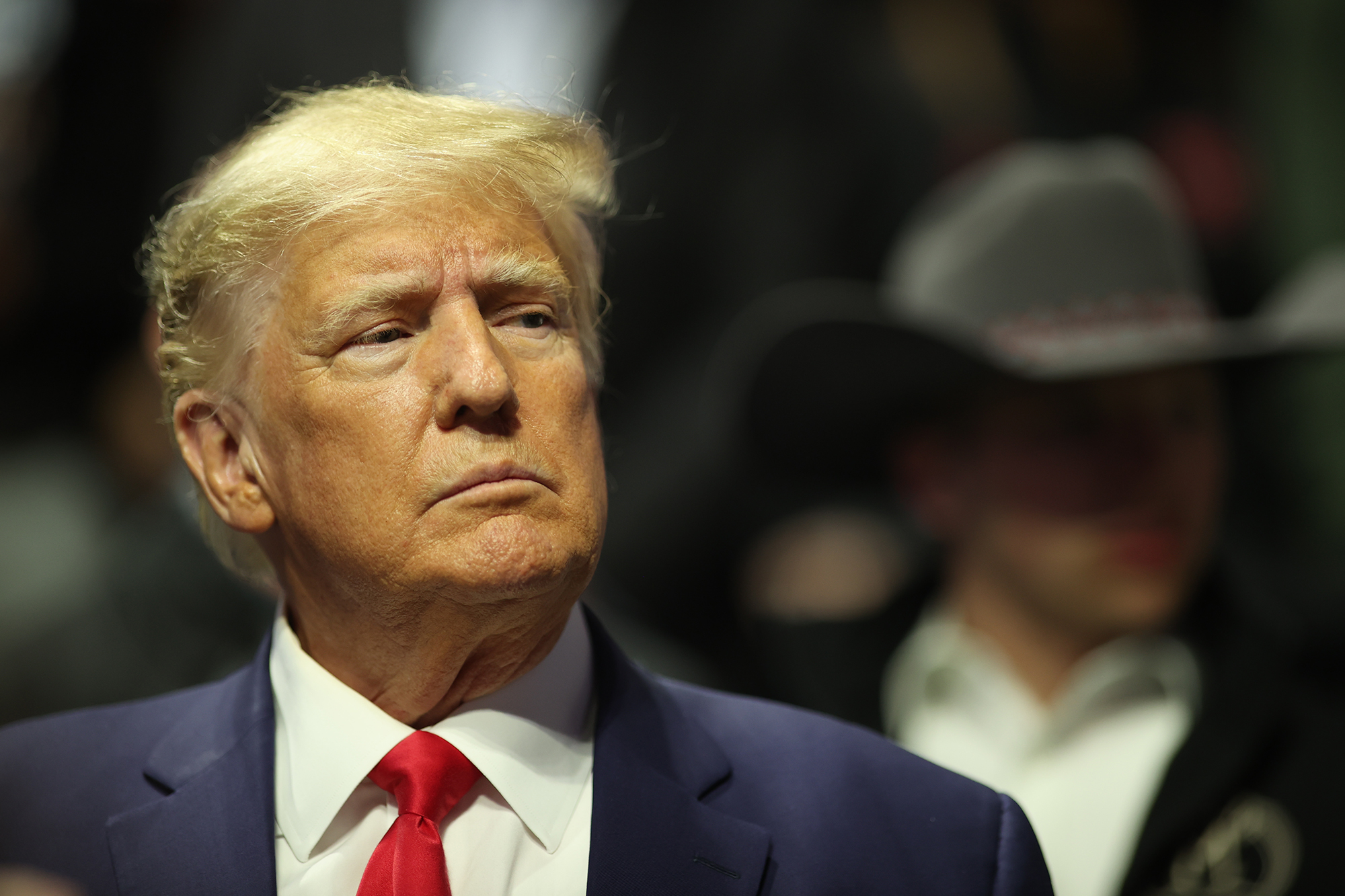 Photo: Former members of Trump's team call for his threats against NATO to be taken seriously (Getty Images)
Photo: Former members of Trump's team call for his threats against NATO to be taken seriously (Getty Images)
According to Fesenko, Trump may not want to withdraw the U.S. from NATO. It would instead hit international interests and create many problems for America if there is instability in many parts of the world.
"The main risks associated with Trump are not concrete. There is a potential risk regarding NATO. It's not certain that the U.S. will want to leave the Alliance under him, but he may weaken America's role or obstruct the coordination of joint decisions. Overall, Trump's inconsistency and oscillation from one extreme to another can hurt the course of events," he noted.
At a rally in South Carolina, Trump also condemned the allocation of billions of dollars in financial aid, apparently hinting at Ukraine. According to The New York Times, his statement came after Republicans in Congress opposed increasing assistance to Ukraine. The agency also drew attention to Putin's words in an interview with Tucker Carlson, who called on Washington to strike a deal by making concessions to Moscow over the occupied territories. In the West, this was perceived, in particular, as a call for Republicans to block aid to Ukraine, NYT points out.
Considering the threats to Ukraine, Fesenko emphasizes that Trump has managed to create significant risks long before the elections.
"The situation in the U.S. Congress is a consequence of Trump's position, which categorically rejects compromises with Joe Biden. Already, this has created major problems. It is very likely that if he becomes president, there will be no budgetary support for Ukraine. Military support may be maintained, but they may partially provide weapons on credit because the position of populists is that money should work for their own country. And undoubtedly, there is a great risk that under Trump, especially at the beginning, we will start leaning towards agreements with Russia," the political scientist said.
As for the threats to Ukraine on the path to NATO, it is not worth talking about. Firstly, the subject of Euro-Atlantic integration is practically blocked by the current U.S. administration. Secondly, the issue of the Alliance is much less of a concern for Trump than other issues. The Biden administration is not even rushing to invite Ukraine, emphasizes Fesenko.
The solution is one - to prepare for the possible election of Trump and build communication with his team. And the Ukrainian side is already doing this. For example, a delegation with the head of the Congressional Intelligence Committee, Republican Mike Turner, recently visited Kyiv. In a recent interview for CNN, the head of the Main Intelligence Directorate, Kyrylo Budanov, called Trump "an experienced person, and he has fallen many times and gotten back up again." According to him, to say that he is a supporter of the Russian Federation is "complete nonsense."
"The passage about him was a bit in a complimentary form. Everyone knows that Trump doesn't like criticism. Yes, it's a bit of playing up, but it doesn't mean we support him. The imperative of Ukrainian policy is bipartisan support. We don't support Republicans or Democrats, especially during elections - we work with both parties," added Fesenko.
Assistance to Ukraine. Why NATO preparing a backup plan and how it's related to Trump
Long before the elections, Trump is trying to take control of American politics and the Ukrainian agenda. It is enough to see how his request not to adopt the law on strengthening immigration control in exchange for assistance to Ukraine has blocked the document over which Republicans and Democrats have been fighting for months.
And this problem forces Western allies to reconsider their approach to military supplies. Handelsblatt writes that U.S. National Security Advisor Jake Sullivan and NATO Secretary-General Jens Stoltenberg have developed a concept according to which the Ramstein format could be transferred under the auspices of the Alliance. Eastern European countries, Great Britain and France, support this. Germany is skeptical due to fears that this will confirm the Kremlin's narrative that NATO is allegedly waging war against Russia.
Formally, they will not refuse Ramstein, but the independent structure can be transferred under the control of the Alliance. If this happens, the U.S. will lose its leader status in the group, and the format will have a collective leader in the person of NATO, writes Handelsblatt. The news has not been officially commented on yet. But it is possible that the meeting on February 14 may shed light on it.
Political scientist Volodymyr Fesenko generally positively assesses the review of the aid mechanism. According to him, this can be Ukraine's insurance and a precaution if Trump becomes the U.S. president.
"Currently, Ramstein is mostly about American leadership. To not depend on America organizationally and ensure assistance to Ukraine even if the U.S. suddenly withdraws from NATO, it is necessary to consider other logistics. This is correct; European partners also need to prepare and work out various backup scenarios for assistance to Ukraine," he emphasized.
In his opinion, the possible consequences of Trump's victory will be discussed, particularly at the Munich Security Conference, which will take place on February 16-18.
"Perhaps they will agree that it is necessary to accelerate the creation of a European security system. Estonian Prime Minister Kaja Kalas called Trump an "alarm clock." Europe needs to wake up and think about how to defend itself. In this regard, Trump has already played a positive role," Fesenko concluded.
Statements about plans to review U.S. leadership in NATO and issues concerning Ukraine are made by representatives of the Weimar Triangle - France, Germany, and Poland. The day before, Polish Prime Minister Donald Tusk noted that these countries should play a decisive role in supporting Ukraine and show Putin that Europe is not tired of it.



